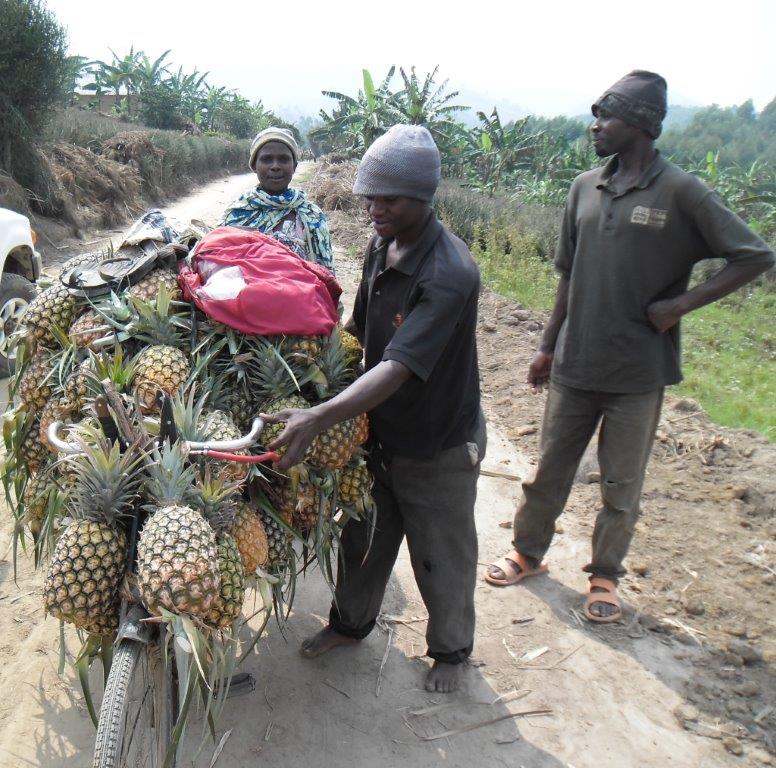Getting pineapples from the field to the market
 In Uganda pineapples are a major cash crop that many families depend on. Once pineapples are ready for harvest, coordinated action is required between many people to get them out of the field and into the hands of consumers.
In Uganda pineapples are a major cash crop that many families depend on. Once pineapples are ready for harvest, coordinated action is required between many people to get them out of the field and into the hands of consumers.
However, losses occur in various ways at different steps of the process. Communication gaps specifically create economic and food losses when alliances quickly change or agreements dissolve. For example, a broker who has made an agreement with a farmer to return to a field to purchase a certain number of pineapples at a specific price may invest in a truck to come to the site only to find that the farmer has already sold the pineapples to another buyer for a higher price. In other cases, a farmer may hire labourers to cut pineapples to sell to a trader at a certain price only to find that once they have been cut, the trader reduces the price.
In this context, food systems research by PhD student Katharine Tröger and MSc student Katharina Bitzan along with their Ugandan counterparts Carolyn Nakakeeto and Robinah Makomero brought multi-stakeholder groups together with those directly involved in the pineapple chain: including pineapple farmers, collectors, brokers, and different types of traders who supply to national and regional markets. These meetings took place in August and September of 2015 in Ntungamo and Masaka Districts in West and Central Uganda.
For example in Masaka, Tröger, Bitzan, Nakakeeto and Makomero, along with Post-Doctoral Research Fellow, Margareta Lelea, led a final multi-stakeholder meeting for 2015 where the participating farmers, brokers and traders engaged in an in-depth discussion about specific conditions that result in gains or losses by different people along the chain. To animate the discussion and encourage system learning, a role-play was organized. Participants enacted the process of the pineapple chain by playing roles which were not the ones that they normally do. This allowed for perspectives to emerge about how, for example, a farmer perceived the activities of a broker, or how a collector perceived the activities of a farmer. Many situations emerged demonstrating how agreements were undermined which resulted in delays, fruit damages and economic losses. Through the role-play, it became very clear that each person in the chain depended upon the others and that communication is key to reduce losses.
The conversation motivated willingness among participants to continue with multi-stakeholder meetings. Although some had known each other previously, they found the method of facilitation a beneficial way to structure their dialogue productively. By bringing together the knowledge of different actors along the chain with that of researchers using transdisciplinary approaches, there is possibility for more coordinated communication and cooperation.






